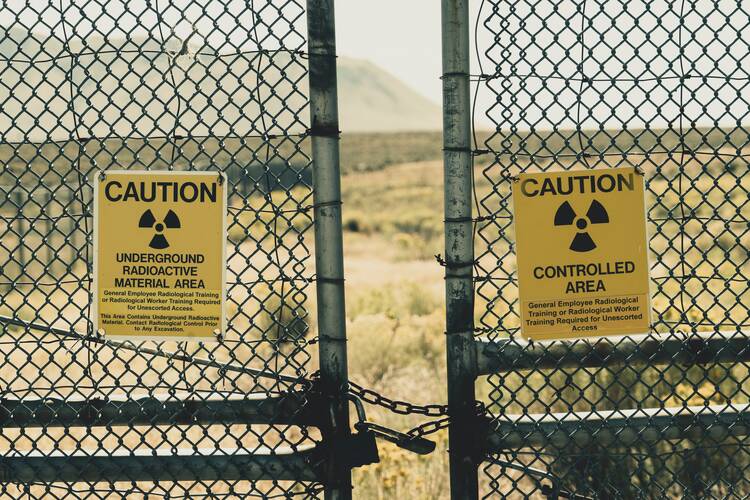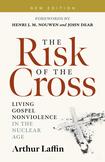Review: Just war theory is out. Gospel nonviolence is the right way to go.
It is a frequent temptation in the United States today to underestimate the threat of nuclear warfare. The U.S. Catholic community has had an exceptionally difficult time coming to terms with this over the past couple of decades. Bishops who spoke out against nuclear arms in the past, like Raymond Hunthausen, Walter Sullivan and Thomas Gumbleton, have no real ideological heirs among the American episcopacy today. What place does nuclear resistance have in the church now? Who should take up the mantle in our time, and how should they go about doing it?
In The Risk of the Cross, Arthur Laffin, a longtime peace activist and practitioner of Gospel nonviolence, answers these questions in no uncertain terms. First, nuclear resistance ought to be at the very heart of the church’s mission globally—but especially in the United States. Second, rather than waiting for the hierarchy and local clergy to take the reins of the peace movement today, Laffin argues that this work begins on the local level. Third is the way laypeople can take these concerns on their own shoulders through prayer and action.
Rather than waiting for the hierarchy and local clergy to take the reins of the peace movement today, Laffin argues that this work begins on the local level.
The heart of the book’s message is found in the five “sessions” that Laffin provides the reader. These sessions lend themselves organically to small prayer groups. Each session examines a passage from Mark’s Gospel and is rooted in scriptural exegesis and group prayer, with the goal that it leads to action in the world. The last of the five appendices, in fact, addresses the very notion of taking action, even providing concrete actions that groups can take upon themselves to bring peace to the world in a practical way.
There are a number of highlights in this very fine text. While all five sessions are refreshingly revelatory, Session Five proposes a “liturgy of life” and will be especially welcome to those peacemakers who find themselves part of a eucharistic community. The discussion questions at the end of each session allow readers to see how the Gospel affects them personally. The book, therefore, is both an intellectual exercise and a spiritual one.
In his recent encyclical, “Fratelli Tutti,” Pope Francis calls the church to move away from just war theory. This book is one of the most practical ways to carry that call into a small group setting. Local communities will devour this book. To such intrepid groups, I heartily recommend these hopeful pages.
This article also appeared in print, under the headline “The path of resistance,” in the January 2021, issue.









